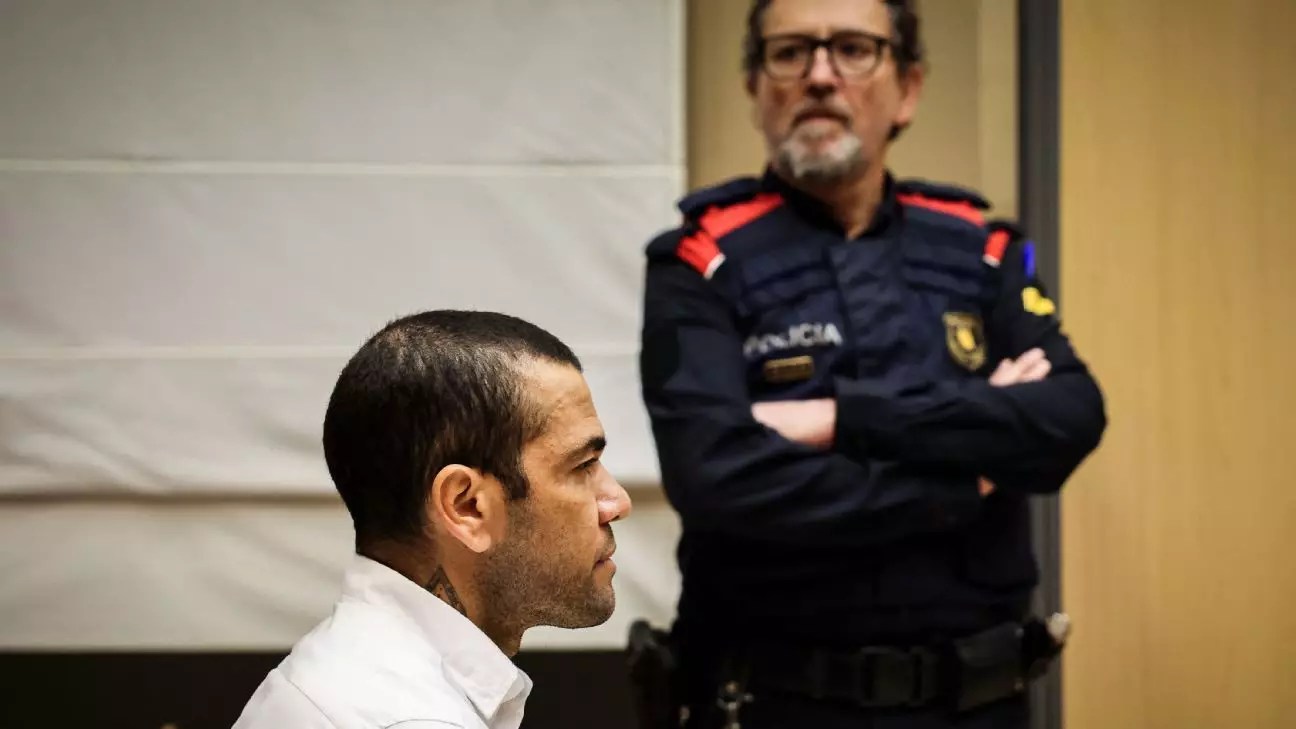Former Brazil footballer Dani Alves is at the center of a controversial case, where he was sentenced to 4½ years in prison for sexually assaulting a woman in a Barcelona nightclub in 2022. However, Alves was granted bail after making a €1 million payment as he awaits the result of an appeal to his rape conviction.
Alves had initially struggled to come up with the money required for bail, leading to him remaining in prison for a week after the decision was made. Sources revealed that he explored various options, such as freeing up assets and requesting money owed to him by the Spanish tax agency. Ultimately, he was able to make the payment on Friday, leading to his imminent release.
As part of the release conditions, Alves had to surrender both his Brazilian and Spanish passports, in addition to posting bail. He is also prohibited from leaving the country and must maintain a residence near Barcelona. Furthermore, he is not allowed to come within 1,000 meters of the victim or attempt to communicate with her. Alves must also make weekly check-ins at the courthouse to ensure he complies with the terms of his release.
The decision to grant Alves bail pending the outcome of his appeal has sparked controversy, with the victim’s lawyer, Ester García, labeling it as “scandalous” and claiming that it represents “justice for the rich.” This backlash highlights the sensitivity of the case and the scrutiny surrounding high-profile individuals within the legal system.
The release of Dani Alves following his bail payment underscores the complexities of the legal process and the implications of celebrity status in such cases. The conditions of his release and the public response demonstrate the challenges of navigating the intersection between fame, wealth, and justice.


Leave a Reply